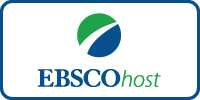Management and Leadership in Serbian Terminology Work
Abstract
Research question: This paper studies the roles of Terminology Leadership (Filipovic 2012, 2015; Filipovic & Vuco, 2012; Filipovic & Djordan, 2018) and Terminology Management model (Jernudd & Neustupný, 1987, 1991; Jernudd 1993, 1997 in Antia, 2000, p.3; Spolsky, 2004, 2009, 2012) in the implementation of terminology policy and planning in Serbia, and the sustainable development of Serbian scientific and technical terminology. Motivation: As in almost all standard-language cultures (Quirk,1990), the Serbian language policy is top-down oriented, i.e., it follows the language management model. In this model, all decisions regarding the language, including terminology decisions, are made by linguists - language planners, without taking into account the opinions of professional and academic communities, i.e., the primary creators and users of terminology. Newer European terminology guidelines, especially the widely accepted UNESCO Guidelines for Terminological Policies (2005, p.3), however, propose that terminology work should be approached both top-down, i.e., on the level of political decision-making (following the terminology management model), and bottom-up, i.e., on the level of professional associations and other terminology stakeholders (following the complementary model of terminology leadership). Idea: The idea behind this paper is to investigate to what extent the terminology leadership model and the bottom-up orientation in the Serbian terminology policy and planning are recognized and accepted by various groups of stakeholders in comparison with the dominant language management model. Data: The data regarding the perspectives of two groups of terminology stakeholders (technical translators and professional / academic community) towards the state of the Serbian subject-field terminology and terminology management were collected, analyzed, interpreted and compared. Tools: The data were collected through two surveys on terminology work (Andjelkovic, 2018). While the first survey focuses on translators’ perspective on terminology management, the second survey examines the attitude of the academic community towards the terminology state of their own subject field: management. Findings: The surveys’ results confirm that both groups of terminology stakeholders recognise the importance of collaborative and cooperative work of linguists and subject field specialists in terminology policy making, planning and implementation, and thus do not regard linguists (i.e., language planners) as exclusive language and terminology decision-makers. The results also indicate, however, that there is still a very strong influence of standard-language ideology and the top-down oriented language policy. Contribution: The paper suggests a change in the implementation of the Serbian terminology policy and planning that is more in line with the European terminology Guidelines (UNESCO, 2005).

This work is licensed under a Creative Commons Attribution-NonCommercial-NoDerivatives 4.0 International License.

















